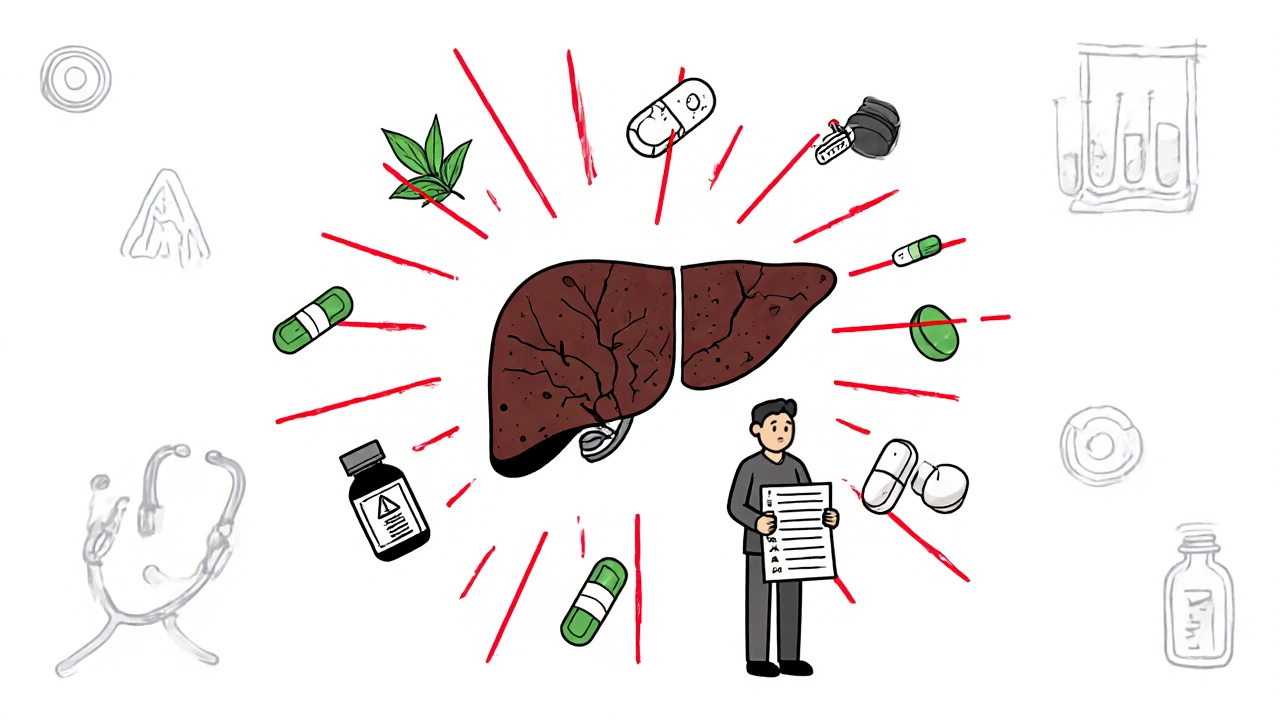Medication Liver Damage: Signs, Causes, and How to Stay Safe
When you take a pill, you expect it to help—not hurt. But some medications, even common ones, can cause medication liver damage, harm to the liver caused by drugs or supplements, also known as drug-induced liver injury. This isn’t rare. It’s one of the most common reasons people end up in the hospital for unexpected liver problems. Your liver works hard to break down everything you swallow. Sometimes, it gets overwhelmed. Even if you’re taking your meds exactly as prescribed, your body might react in ways no one warned you about.
Hepatotoxicity, the technical term for liver damage caused by chemicals or drugs doesn’t always show up right away. You might feel fine for weeks. Then, out of nowhere, you’re tired all the time, your skin turns yellow, or your urine looks like tea. These aren’t normal side effects—they’re red flags. Some drugs, like high-dose acetaminophen or certain antibiotics, are known culprits. Others, like statins or seizure meds, sneak up on you. And it’s not just prescription drugs. Supplements, herbal remedies, even over-the-counter painkillers can add up. Drug-induced liver injury, a preventable form of organ damage caused by medication use often gets missed because doctors don’t always test liver enzymes unless you’re clearly sick.
What makes this even trickier? Some people are just more sensitive. Age, existing liver conditions, or mixing meds can turn a safe dose into a dangerous one. Older adults are at higher risk—not because they take more pills, but because their livers process things slower. And if you’re on multiple drugs, interactions can sneak in. Like combining fluoroquinolone antibiotics with NSAIDs—something we’ve seen in real cases where kidney and liver damage happened together. Or taking isotretinoin for acne without monitoring liver enzymes, which is part of the iPLEDGE program for a reason.
You don’t need to avoid all meds. But you do need to be smart. Know what you’re taking. Ask your doctor or pharmacist: "Could this hurt my liver?" Get baseline blood work before starting a new drug. Watch for symptoms. Don’t ignore unexplained fatigue or dark urine. And if you’re on long-term meds, ask about periodic liver tests. It’s not about fear—it’s about awareness.
Below, you’ll find real, practical guides on how medications affect your body, what to watch for, and how to spot danger before it’s too late. From how drug labels hide risks to why generic prices vary and how clinical trials don’t tell the whole story—this collection gives you the tools to protect your liver, one pill at a time.
Medication-Related Liver Damage: Signs You Can't Ignore and When to Get Help
Medication-related liver damage can be silent until it's life-threatening. Learn the early signs, which drugs are most dangerous, and exactly when to seek emergency help to prevent permanent liver injury.
read more

